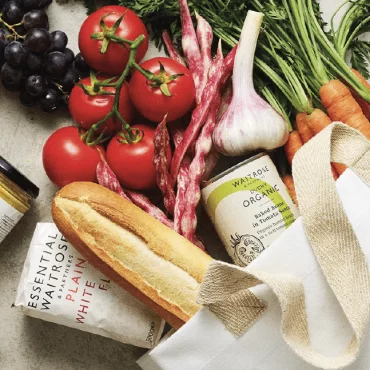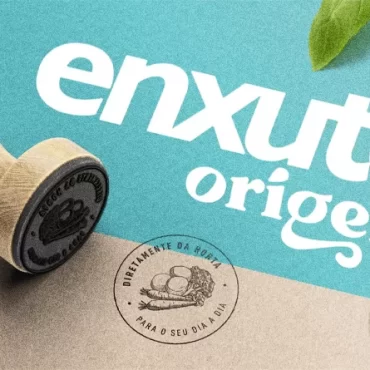How can food sustainability transform the market?

Get inspired
The alert from the scientific community is clear: if we fail to take action to preserve the environment, the consequences of climate collapse could be devastating. Everyone must do their part, and companies, which have resources to not only reduce, but also repair their socio-environmental impacts, need to act quickly. With this in mind, more and more professionals in the food market are calling attention to food sustainability. Have you heard of this term?
It gained so much importance that, last year, it was the subject of a publication by the global scientific platform for the transformation of the EAT food system and has been provoking reflections among several brands. Want to know more? Come check out our article!
What is food sustainability?
One of the biggest challenges we face is to offer a healthy diet, with sustainable food systems, to a growing world population. According to a report published by the UN, 820 million people suffer from hunger in various parts of the world. Meanwhile, a large number of people consume low quality or excess diets, causing health risks to the ecosystem’s resilience.
To change this scenario, researchers from different areas have been defending food sustainability, which can be achieved through a series of initiatives based on a joint effort of research institutions, industries, governments and communities.
In line with this objective, the EAT scientific platform called 37 researchers from 16 countries and different disciplines to establish a universal strategic plan. It addresses, in detail, the following points:
- Achieve an international and national commitment to promote healthy diets.
- Reorient agricultural priorities for producing large quantities of food to produce healthy ingredients.
- Intensify sustainable food production to increase high-quality production.
- Strong and coordinated governance of land and oceans.
- Reduce food losses and wastes by at least half, following the UN Sustainable Development Goals (SDGs).
Seems ambitious? Well, building a new reality requires big dreams and goals. And the good news is that this mindset has already made companies of different sizes rethink their practices, as we will see below!

What changes has food sustainability brought to the market?
To help people make the transition to healthier diets and make sustainable food choices possible, some brands are already working in new strategies. Check out some inspiring examples!
1. Business strategies guided by sustainability
Brands that wish to collaborate with food sustainability and the achievement of the SDGs, need to take these guidelines into their strategic plans for production and growth. In line with this mindset, Unilever announced, in November this year, the global goal “Food of the Future”, which will transform the operations of several of its brands.
Among the actions planned, is the expansion of the sale of plant-based meats – such as those from Vegetarian Butcher, recently acquired by Unilever – and alternatives to dairy products in a period of 5 to 7 years. In addition, within five years, the company pledged to reduce food waste by 50% in all its operations, as well as the levels of calories, salt and sugar in all products.
The company will also invest 1 billion euros in a new Climate and Nature Fund and has guaranteed that all of its plastic packaging will be reusable, recyclable or compostable by 2025.
2. Encouraging plant-based food
Meat production and animal products have a great environmental impact. To understand more, a study carried out at the Federal University of Minas Gerais (UFMG) showed that almost 85% of the deforested land in the Amazon is in pasture areas. A good part of consumers has been becoming aware of these problems and adopting veganism as a lifestyle, making plant-based products promising in the market.
Fazenda do Futuro knows this very well. She is one of the most prominent foodtechs startups in Brazil and has created a vegan food that mimics the flavor and texture of meat: the Hamburger of the Future. The product – which includes non-GM peas, chickpeas, beets and soy in the recipe, to provide the same amount of protein as meat – is already on sale at thousands of points in Brazil, such as the fast-food chain Bob’s.
A curious aspect: it is strategically placed on meat shelves and not on vegan products, precisely so that non-vegans can learn about this alternative.

3. Waste reduction
It is not by chance that the EAT publication addresses the importance of combating food waste. According to the UN Food Foundation (FAO), in 2019, 13 million people were starving in Brazil. In the same year, the Getúlio Vargas Foundation (FGV) estimated that each Brazilian threw, on average, 41.6 kilos of food per year. That is a big problem, right?
Who has already set a good example in this regard, even before EAT publishes its report, is Luiz’s Brownie, which, as the name implies, manufactures and sells brownies. The carioca brand soon realized that those crusts left by the cake on the tray (and that you love to eat, you can confess!) Also made a delicious dessert. So, they decided to sell the brownie crusts, in decorative cans, and it is a great success!

Food sustainability is an essential step towards achieving a sustainable development future, but it requires everyone’s commitment. If we have the possibility to make choices, it is also necessary to bear the responsibilities they bring, understanding that our consumption habits and production practices have real impacts on the planet. Shall we face this challenge together?
Hey, don’t go away yet! Follow us there on Instagram, Facebook and Linkedin and get inspired with our insights!



